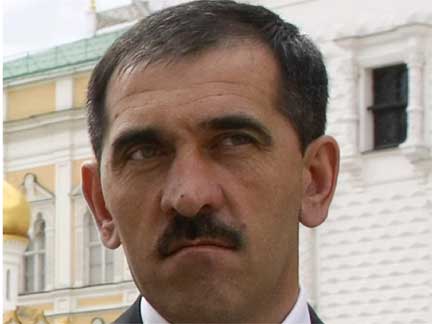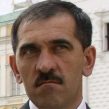
Human Rights Activists Chart Continued Wide-Scale Abuses in the North Caucasus
Publication: Eurasia Daily Monitor Volume: 9 Issue: 37
By:

On February 18, the first North Caucasus forum of human rights organizations took place in Ingushetia. About 100 participants from other regions of the North Caucasus and Russia took part. In one of the most revealing statements to date, the head of Ingushetia, Yunus-Bek Yevkurov, openly admitted the involvement of the Russian security services in kidnappings in the region. Out of the eight kidnappings that took place in Ingushetia in 2011, according to Yevkurov, five displayed features of government involvement. “When they come early in the morning in armored personnel carriers, trucks and other military equipment and take people away, it would be stupid to assert that this is not the work of the siloviki, but, say, Doku Umarov’s work,” Yevkurov acknowledged (https://ingushetia.kavkaz-uzel.ru/articles/201447/, February 19).
Although news about government agents kidnapping suspected rebels is hardly new, the way Yevkurov openly conceded it at the conference of human rights activist is a novel development. As politics in Moscow becomes more open due to mass protests by Russians, the wave of openness seems to be taking hold in the North Caucasus as well. Thus, even government officials may feel the need to adjust their rhetoric to account for the changing political climate in the country. Following in the footsteps of President Dmitry Medvedev, who met Russian opposition members for the first time in the Kremlin on February 20, Yevkurov received members of the Ingush opposition on February 21 (https://ingushetia.kavkaz-uzel.ru/articles/201558/, February 21).
The head of the Moscow Helsinki Group, Ludmila Alekseyeva, noted that rights activists themselves face the same perils as the rest of the population. The Ingush rights activist Maksharip Aushev was gunned down near Nalchik, Kabardino-Balkaria in 2009, and the investigation of his murder has not yet been concluded. Speaking at the conference, his father, Magomed Aushev, told the audience how they were forced to conduct their own investigation in order to try solving the crime (https://ingushetia.kavkaz-uzel.ru/articles/201447/, February 19). In the fall of 2011, Magomed Aushev’s house was reportedly the target of two massive police searches with no search warrants. The Aushevs addressed President Medvedev, asking for help, and the searches stopped (https://www.kavkaz-uzel.ru/articles/196542/, November 27, 2011).
The leader of Ingushetia’s opposition, Magomed Khazbiev, described the situation in the republic as “state terrorism.” According to Khazbiev, the authorities indulge in kidnappings and killings of young people without due legal process. The victims’ relatives take revenge, according to local customs and the cycle of violence repeats itself. Ingushetia’s opposition leader stated that the drop in insurgent activities in Ingushetia was due to the work of civil activists. “They [the insurgents] shoot less not because of the actions of the authorities, but because of people who worked day and night, convincing many of those who took up arms to put them down,” Khazbiev said (https://ingushetia.kavkaz-uzel.ru/articles/201447/, February 19).
The travails of Issa Khashegulgov exemplify what happens to suspected rebels who are detained. Khashegulgov was arrested in October 2010, in connection with the suicide bomb attack in Vladikavkaz in neighboring North Ossetia. The investigators reportedly denied lawyers access to Khashagulgov in February 2012 until he went on a hunger strike and the case caught media attention. Officials were telling Khashagulgov that his lawyers were refusing to defend him and offered him substitute lawyers (https://ingushetia.kavkaz-uzel.ru/articles/201351/, February 17).
The US-based group Human Rights Watch presented its yearly report in Moscow on January 23, 2012. Carroll Bogert, HRW’s deputy executive director for external relations, stated that even though Russia was not a dictatorship like Syria, some parallels between the two countries were obvious. The Russian government’s policy in the North Caucasus was of primary concern for the rights organization. HRW’s expert on Russia, Tatyana Lokshina, told the Kavkazsky Uzel (Caucasian Knot) website that disappearances, kidnappings and torture remain routine practices of the government agencies in the North Caucasus. “Any person who is under the slightest suspicion of participation in an illegal armed group, the possible aiding of such a group or even harboring sympathies for them is going to be subjected to torture,” she said. “Torture is not something exceptional, but routine practice in the region, which is to say that any person who has been arrested can be tortured. Those rights activists and journalists who cover these topics are becoming fewer and fewer. They are killed. In regard to Chechnya, civil society in principle is paralyzed there with fear after the murder of Natasha Estemirova and other activists in 2009. All these murders have remained unpunished.” According to Lokshina, 12 people were kidnapped in Ingushetia in January-September 2011 and seven of them simply vanished (https://www.kavkaz-uzel.ru/articles/199861/, January 25).
Two suicide bombings and 27 other bomb attacks took place in Ingushetia in 2011. In addition, the bomb attack at Moscow’s Domodedovo airport in January 2011 was blamed on an attacker from Ingushetia. Kavkazsky Uzel counted at least 15 cases of kidnappings in Ingushetia in 2011. Although the number of casualties, including those killed and injured on all sides, decreased from 326 in 2010 to 108 in 2011, the rate still remained very high for a republic with a population of less than 500,000 (https://www.kavkaz-uzel.ru/articles/198680/, January 1).
As the political climate in Moscow displays tentative signs of thawing, officials in the North Caucasus have also started voicing uncharacteristically critical opinions about the practices of regional law enforcement agencies. However, there is still a substantial distance between the modest criticism by officials and practical reforms. In the meantime, the short-term forecast for the North Caucasus remains grim, as official Moscow has indicated few signs of changing its policies in the region.




